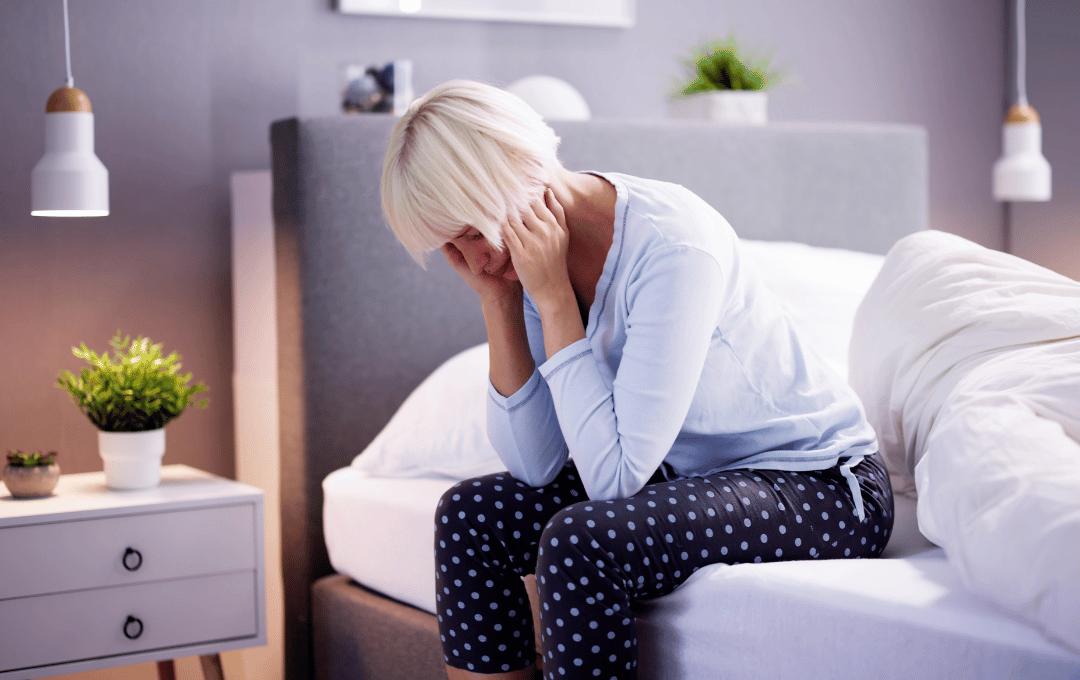
Bleeding after sex can be alarming. While the occasional light spotting may not be concerning, frequent or heavy bleeding during or after sex could signal an underlying health issue. Various conditions, such as uterine fibroids, infections, or cervical abnormalities, can contribute to postcoital bleeding, making it important to understand the reasons behind bleeding after intercourse.
If you frequently experience bleeding after sex, schedule a consultation with a specialist to find answers.
Is It Normal To Bleed After Sex?
Light bleeding after sex can occur due to minor vaginal irritation, friction, or hormonal changes. However, bright red vaginal bleeding after sex or persistent bleeding can indicate underlying conditions. Frequent or heavy bleeding after intercourse could indicate conditions like cervical polyps, infections, endometriosis, or uterine fibroids. A visit to a health professional, such as your doctor or a fibroid specialist, can help diagnose the underlying cause of your post-sex bleeding.
How Long Does Bleeding After Sex Last?
Bleeding lightly after sex may only last a few minutes to a couple of hours, with most cases resolving within a day. The duration of postcoital bleeding varies depending on the underlying cause.
- Minutes to hours: Due to minor irritation or friction.
- A few days: This could indicate an infection, hormonal imbalance, or cervical irritation.
- Recurrent or prolonged bleeding: Fibroids, adenomyosis, or other gynecological conditions.
Keeping track of any bleeding during and after intercourse can help a doctor diagnose the underlying cause.
Fibroids and Bleeding After Sex

Fibroids are a common cause of abnormal vaginal bleeding, including heavy bleeding after sex. These non-cancerous tumors develop in the uterus and grow larger due to hormonal fluctuations, often leading to bleeding between periods, as well as during and after intercourse.
Bleeding after intercourse occurs because fibroids can press against the uterus, cervix, or vaginal canal, making tissues more sensitive. Certain fibroid types, such as submucosal, which grow inside the uterus, are known for causing heavy or prolonged bleeding. In some cases, fibroids can outgrow their blood supply, causing them to rupture and leading to sudden postcoital bleeding.
Bleeding During Sex From Fibroids
Women with fibroids may bleed during intercourse, often accompanied by pelvic pain and discomfort. Fibroids can cause bleeding during sex because of disruption to the growths themselves, extra pressure on the uterus in addition to the tumors, and fibroid degeneration.
Adjusting sexual positions may help reduce discomfort, but the best solution for effective relief is fibroid treatment, such as uterine fibroid embolization (UFE). USA Fibroid Centers specializes in this minimally invasive, non-surgical procedure designed to shrink fibroids and alleviate symptoms.
Schedule a Fibroid Evaluation Today
Other Common Causes of Vaginal Bleeding After Sex

Light bleeding or spotting after sex can occur for many reasons. Many of these conditions have overlapping symptoms, which is why seeking a medical evaluation is important if you experience heavy or persistent bleeding after sex.
Cervical Causes
Besides fibroids, another common cause of vaginal bleeding after sex is cervical issues, such as cervical polyps and cervicitis.
Cervical polyps are benign growths that can bleed upon contact. These teardrop-shaped tissues often extend into the vagina, where they may be irritated during intercourse.
Cervicitis is a cervical inflammation that can result from allergies, hormonal imbalances, or infections like sexually transmitted diseases (STDs). Some women with cervicitis may notice pain during sex, spotting between periods, abnormal vaginal discharge, or bleeding after intercourse.
Vaginal Causes
Various vaginal health factors can contribute to bleeding after sex. These causes include vaginal dryness and tears or friction from sex itself. Vaginal dryness occurs when the vaginal tissue becomes thin and less elastic, often due to hormonal changes, particularly in postmenopausal women. Tears or friction from sex are more likely to happen if there is inadequate lubrication.
Addressing vaginal health through hydration, lubrication, and necessary medical treatment can help prevent recurring bleeding after sex.
Infections and STIs
Infections, including sexually transmitted infections (STIs), are another potential cause of bleeding after sex. STIs such as chlamydia, gonorrhea, or human papillomavirus (HPV) can cause inflammation and irritation of the cervix, leading to postcoital bleeding. Infections that are not sexually transmitted, like yeast infections and bacterial vaginosis (BV) can cause light pink spotting after sex due to irritation of the vaginal tissue.
Hormonal Imbalances
Hormonal imbalances are another contributor to bleeding after sex, particularly with birth control pills or intrauterine devices (IUDs). These contraceptives can sometimes cause irregular bleeding or spotting, especially when starting or changing methods. Hormonal fluctuations related to early pregnancy or conditions like endometriosis may also lead to bleeding during or after intercourse.
Is Bleeding After Sex a Sign of Pregnancy?
Light spotting after sex can occur at any stage of pregnancy due to increased cervical sensitivity. Implantation bleeding may also lead to some women bleeding lightly after sex. While occasional spotting during pregnancy is usually harmless, heavy bleeding or bleeding accompanied by pain should be evaluated by a healthcare provider.
When To Be Concerned About Bleeding After Sex

Bleeding after or during sex can indicate a need to seek medical advice about health conditions such as fibroids, especially if you bleed every time you have sex.
Other signs that the bleeding during or after sex warrants medical attention include:
- Bleeding that lasts more than 24 hours after sex.
- Heavy bleeding after sex, similar to a period.
- Bleeding accompanied by pelvic pain or severe cramping.
- Postmenopausal bleeding after intercourse.
- Pain and bleeding after sex combined with unusual vaginal discharge.
It’s advisable to get evaluated to determine if conditions such as uterine fibroids may be causing your bleeding, pain, pressure, and urinary urgency. Our uterine fibroid specialists can help determine the cause of your bleeding after sex and recommend treatment if needed.
Call Now to Schedule: 855.615.2555
Treatment Options for Bleeding After Sex
Underlying conditions such as fibroids, infections, or cervical issues need medical evaluation for a proper diagnosis and treatment.
Uterine Fibroid Embolization (UFE) for Fibroid Related-Bleeding
At USA Fibroid Centers, our expert interventional radiologists diagnose uterine fibroids with the latest technologies, such as ultrasound, MRI, and CT scans. If fibroids are present, our specialists may recommend uterine fibroid embolization.
This minimally invasive procedure offers many benefits, including:
- Preserves fertility while reducing heavy bleeding and other fibroid symptoms.
- No hospital stay—unlike surgery, UFE is an outpatient procedure.
- Quick recovery—most patients return to work and normal activities within two weeks.
Visit USA Fibroid Centers To Help Treat Bleeding After Sex

Visit a specialist at USA Fibroid Centers for a diagnosis and see if UFE is right for you. Our nationwide clinics accept most insurance plans, Medicare and Medicaid, and self-payment options. You can verify your insurance coverage in real-time using the online scheduling form before finalizing your appointment, or call us at 855.615.2555.
Bleeding After Sex FAQs
Can Fibroids Cause Bleeding During Sex Without Pain?
Fibroids can cause bleeding during intercourse without pain, as they can increase blood vessel fragility in the uterus. While pain during sex is a common symptom of fibroids, some women may experience postcoital bleeding without discomfort. This discomfort occurs due to the fibroids’ blood supply being disrupted by movement during intercourse or if the fibroids are near the cervix, like with submucosal fibroids.
Is Postcoital Bleeding More Common with Age?
Postcoital bleeding can impact older women more than younger women due to vaginal atrophy and hormonal changes after menopause that make it more common. However, postcoital bleeding can occur at any age, depending on hormonal changes, contraceptive use, and underlying health conditions.
Should I Stop Having Sex if I Experience Bleeding After Intercourse?
If you frequently experience bleeding after sex, visit a doctor before continuing sexual activity. Occasional postcoital bleeding is usually not a cause for concern, but if it is heavy, persistent, or occurs regularly, medical evaluation is necessary.



